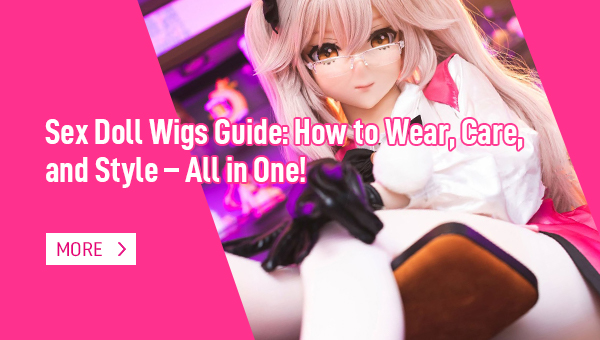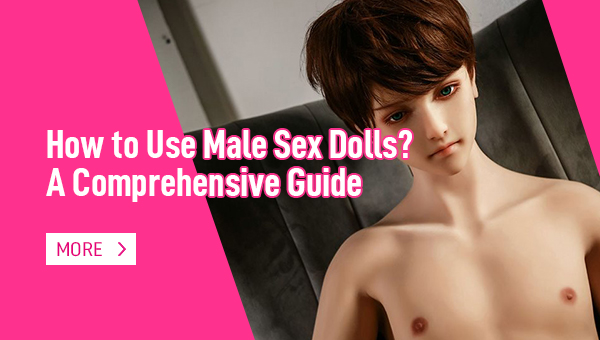Busting the Misconceptions and Stereotypes About Sex Dolls
November 10, 2023 2023-11-24 17:50Busting the Misconceptions and Stereotypes About Sex Dolls

Busting the Misconceptions and Stereotypes About Sex Dolls
Sex dolls have been a part of human culture for decades. This article seeks to explore the nuanced landscape of sex dolls, dispelling prevalent misconceptions and stereotypes that have shrouded these lifelike companions. Recent research endeavors have contributed valuable insights, challenging ingrained beliefs and fostering a more informed discourse.
Misconception 1: Objectification of Women
One of the most pervasive misconceptions surrounding sex dolls revolves around the belief that users inherently objectify women. The argument suggests that these realistic replicas encourage a dehumanizing perspective towards women.
Contrary to this assumption, empirical research indicates that a significant portion of sex doll users employ these companions not as substitutes for genuine relationships but as tools for self-discovery. Many users report that engaging with sex dolls is a means to explore and understand their own sexuality, foster personal growth, and contribute to improved relationships with real women.
That said, the relationship between a user and their sex doll is often more complex than a mere objectification of women. Users express a range of motivations, from companionship to addressing personal insecurities, showcasing that these interactions go beyond the simplistic notion of objectification.
Misconception 2: Mental Illness and Danger
Another widespread misconception asserts that sex doll owners are more prone to mental illness or pose a danger to society. This stereotype, fueled by societal stigma, assumes a correlation between owning a sex doll and engaging in criminal behavior. However, recent studies have refuted this assertion, revealing that there is no concrete link between sex doll ownership and an increased risk of sexual violence or criminal conduct.
The therapeutic potential of sex dolls has also emerged as a noteworthy aspect in recent research. Contrary to the belief that sex dolls are exclusively associated with deviant behavior, some therapists now recognize their potential as therapeutic tools. Sex dolls can serve as aids for individuals grappling with sexual issues. They offer an unconventional yet effective avenue for addressing and overcoming challenges.
Misconception 3: The Stigma of Specific Types
Beyond the overarching misconceptions lie stereotypes associated with specific types of sex dolls. Pregnant sex dolls, for instance, evoke a particular set of falsehoods, often labeled as weird or uncomfortable. However, evidence suggests that individuals who choose these dolls view them as natural extensions of their sexual fantasies. There is no indication that owning a pregnant sex doll is inherently harmful or deviant.
These specific stereotypes underscore the importance of recognizing the diversity within the sex doll community. Preferences vary widely among users, and the acceptance of different types of sex dolls challenges societal norms, fostering a more inclusive understanding of individual sexual expression.
Sex Dolls as Legitimate Forms of Sexual Expression
Acknowledging sex dolls as legitimate forms of sexual expression is paramount in fostering a nuanced perspective. While they may not resonate with everyone, these lifelike companions offer a safe and healthy outlet for individuals to explore their own sexuality and enhance their connections with real-life partners. Research continues to unfold, shedding light on the multifaceted nature of sex doll ownership and challenging prevailing misconceptions.
Personal Testimonials
The voices of sex doll users further contribute to debunking prevailing myths. Many have come forward to share their experiences, shedding light on the genuine reasons behind their choices. These narratives reveal a diverse range of motivations, from companionship and intimacy to addressing personal insecurities or exploring unconventional facets of sexuality.
The common thread among these testimonials is the assertion that sex dolls enhance, rather than hinder, users’ ability to form meaningful connections with real partners. Humanizing the experiences of sex doll users will challenge the stereotype that users are detached or incapable of forming genuine connections. For many, the relationship with a sex doll is a deeply personal journey that goes beyond societal judgment.
The Societal Shift
As societal attitudes toward sexuality continue to evolve, there is a growing recognition of the need for a more informed and open-minded discourse surrounding sex dolls. The destigmatization of these lifelike companions is not only crucial for the well-being of users but also for fostering a more inclusive and accepting society.
The diversification of sexual preferences within the sex doll community is reflective of a broader societal shift towards acknowledging and respecting individual choices. This shift challenges traditional norms, prompting a reevaluation of what is considered acceptable or taboo in human sexuality.
Conclusion
A combination of research, therapeutic acknowledgment, and personal testimonials is systematically dismantling the misconceptions surrounding sex dolls. Recognize that sex dolls are legitimate tools for sexual expression.
As societal attitudes continue to evolve, a more informed and nuanced understanding of sex dolls and their users is emerging, paving the way for greater acceptance and destigmatization. The journey toward dismantling misconceptions is ongoing, but with each revelation, a more comprehensive understanding of human sexuality unfolds.






